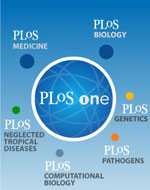PLoS ONE:古老药用植物抑制黑色素瘤转移
2012-07-26 Beyond 生物谷
近日,Gary Goldberg博士带领的国际科学家小组发现,来源于植物种子的种蛋白质可阻止黑色素瘤的蔓延,黑色素瘤是一种致命皮肤癌。据国家癌症研究所估计,今年在美国,黑色素瘤将导致超过9000人死亡。 此前发表的研究中,Goldberg博士的研究小组探究了原产于亚洲部分地区的豆科植物树的种子中提取的一种蛋白质。在中国,此树的药用价值可以追溯到400多年的古文件。Goldberg博士和他的同事发
近日,Gary Goldberg博士带领的国际科学家小组发现,来源于植物种子的种蛋白质可阻止黑色素瘤的蔓延,黑色素瘤是一种致命皮肤癌。据国家癌症研究所估计,今年在美国,黑色素瘤将导致超过9000人死亡。
此前发表的研究中,Goldberg博士的研究小组探究了原产于亚洲部分地区的豆科植物树的种子中提取的一种蛋白质。在中国,此树的药用价值可以追溯到400多年的古文件。Goldberg博士和他的同事发现植物种子中的一个特定成分可与多种类型的癌细胞表达的受体平足蛋白相作用。
平足蛋白受体促进肿瘤的侵袭和转移到其他部位的身体,这是导致绝大多数的癌症患者死亡的主要原因。平足蛋白使肿瘤细胞打破了他们的微环境,侵入新的组织和转移。我们的实验室研究表明朝鲜槐成分不仅显著降低细胞迁移,也能抑制癌细胞的生长。
相关研究论文发表在PLoS ONE杂志上。虽然这一研究集中在黑色素瘤上,但朝鲜槐成分也可能是有助于治疗和预防多种表达平足蛋白的癌症。Goldberg博士的研究小组与美国国立卫生研究院国家癌症研究所合作发现朝鲜槐成分可以有效地抑制肺癌、乳腺癌、前列腺癌、结肠癌、脑肿瘤细胞生长。
许多抗癌药物会引起明显的副作用,因为他们不分青红皂白,会杀死所有分裂的细胞,而不是精确瞄准癌细胞。通常情况下,这些药物需要静脉注射治疗特定癌症包括恶性黑色素瘤。相比之下,Goldberg博士的研究结果表明可内服朝鲜槐成分来有效地对抗癌症。研究人员还发现朝鲜槐成分没有造成明显的副作用,剂量依赖性抑制癌细胞的生长和迁移。
编译自:Bioactive protein from ancient medicinal plant may help combat melanoma and other cancers

doi:10.1371/journal.pone.0041845
PMC:
PMID:
Plant Lectin Can Target Receptors Containing Sialic Acid, Exemplified by Podoplanin, to Inhibit Transformed Cell Growth and Migration
Jhon Alberto Ochoa-Alvarez1,2#, Harini Krishnan1,2#, Yongquan Shen2, Nimish K. Acharya1,6,etl al
Cancer is a leading cause of death of men and women worldwide. Tumor cell motility contributes to metastatic invasion that causes the vast majority of cancer deaths. Extracellular receptors modified by α2,3-sialic acids that promote this motility can serve as ideal chemotherapeutic targets. For example, the extracellular domain of the mucin receptor podoplanin (PDPN) is highly O-glycosylated with α2,3-sialic acid linked to galactose. PDPN is activated by endogenous ligands to induce tumor cell motility and metastasis. Dietary lectins that target proteins containing α2,3-sialic acid inhibit tumor cell growth. However, anti-cancer lectins that have been examined thus far target receptors that have not been identified. We report here that a lectin from the seeds of Maackia amurensis (MASL) with affinity for O-linked carbohydrate chains containing sialic acid targets PDPN to inhibit transformed cell growth and motility at nanomolar concentrations. Interestingly, the biological activity of this lectin survives gastrointestinal proteolysis and enters the cardiovascular system to inhibit melanoma cell growth, migration, and tumorigenesis. These studies demonstrate how lectins may be used to help develop dietary agents that target specific receptors to combat malignant cell growth.
作者:Beyond
版权声明:
本网站所有注明“来源:梅斯医学”或“来源:MedSci原创”的文字、图片和音视频资料,版权均属于梅斯医学所有。非经授权,任何媒体、网站或个人不得转载,授权转载时须注明“来源:梅斯医学”。其它来源的文章系转载文章,本网所有转载文章系出于传递更多信息之目的,转载内容不代表本站立场。不希望被转载的媒体或个人可与我们联系,我们将立即进行删除处理。
在此留言





#色素#
28
#植物#
28
#Plos one#
31
#黑色素#
31
#黑色素#
33